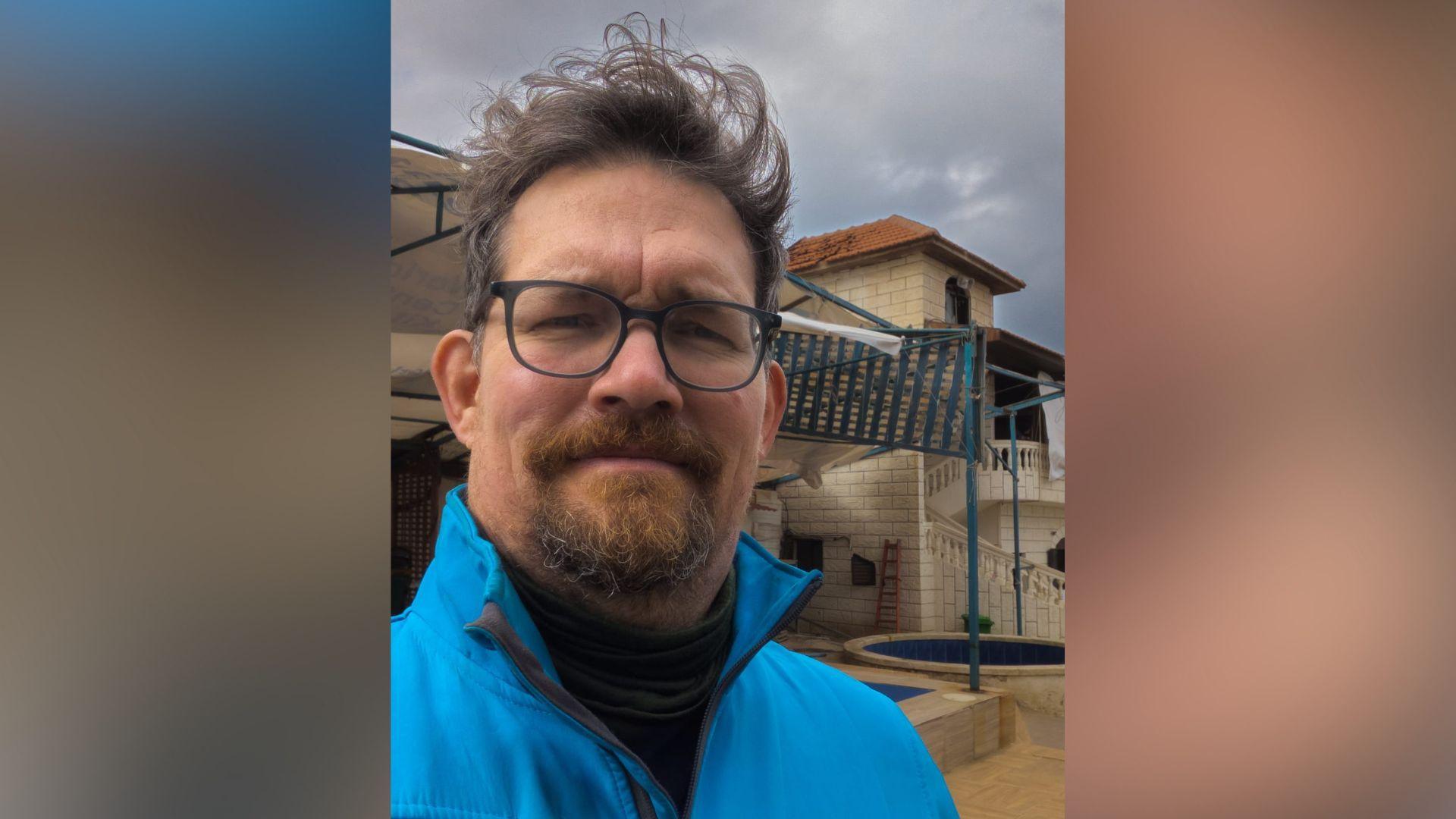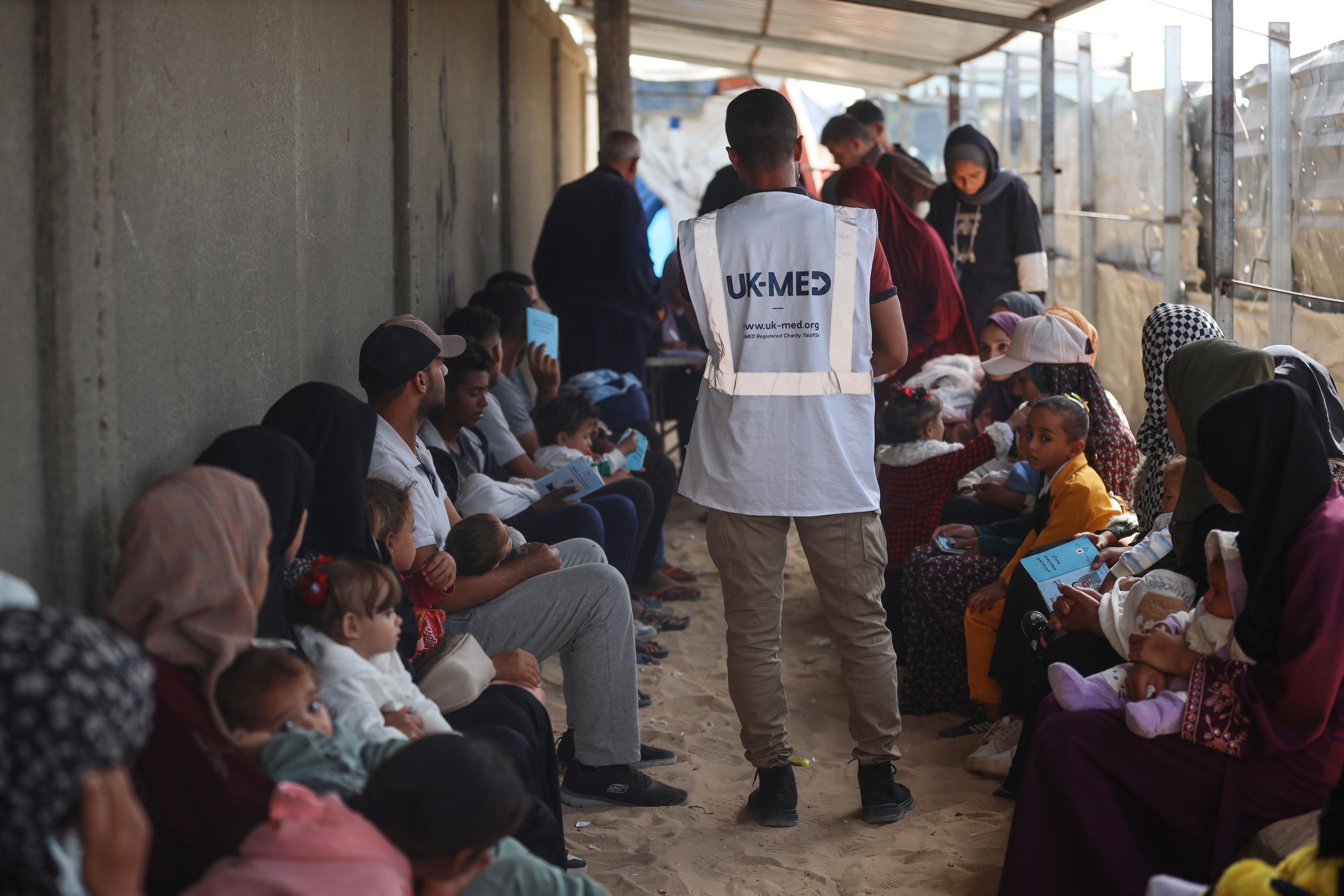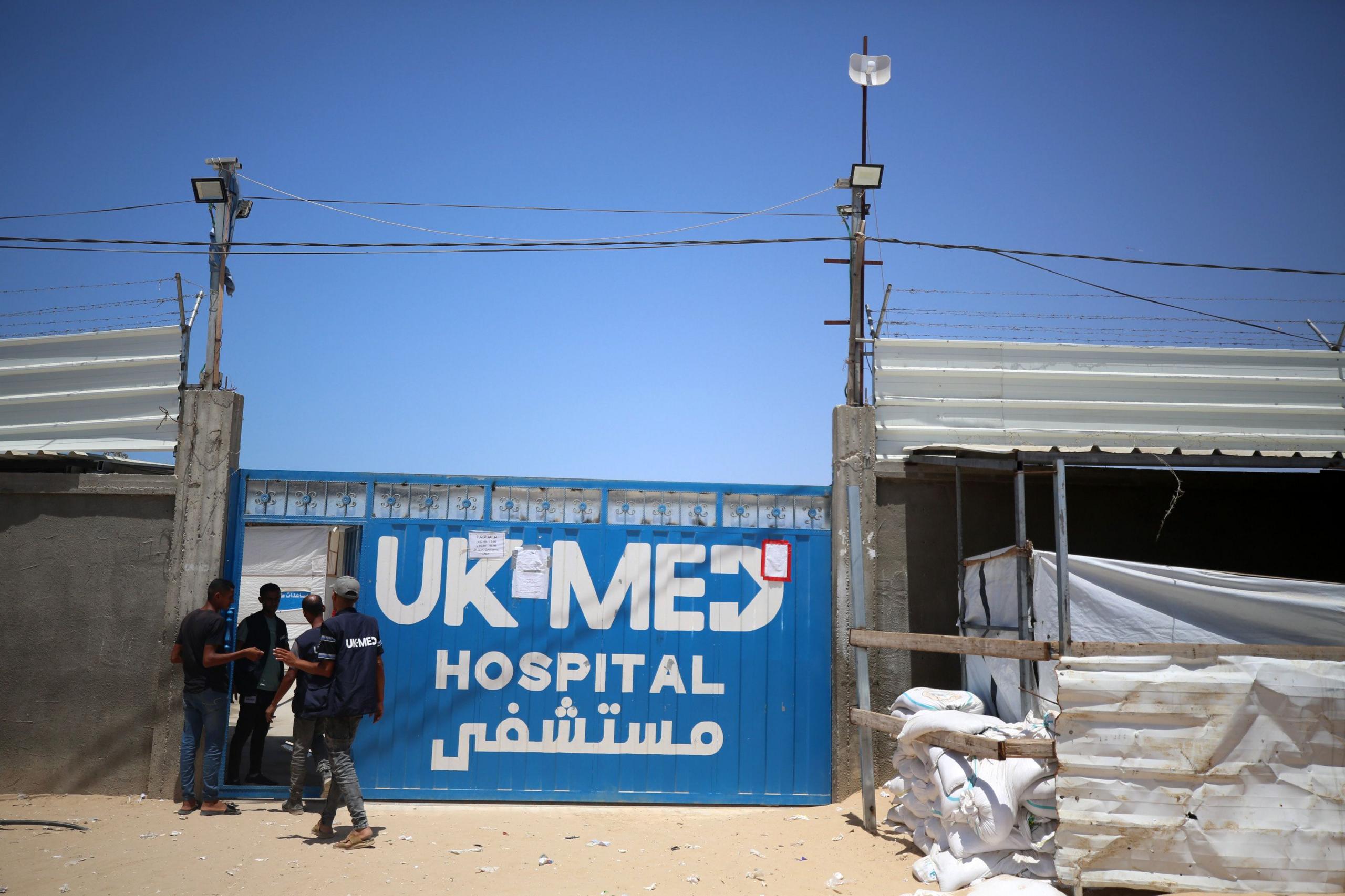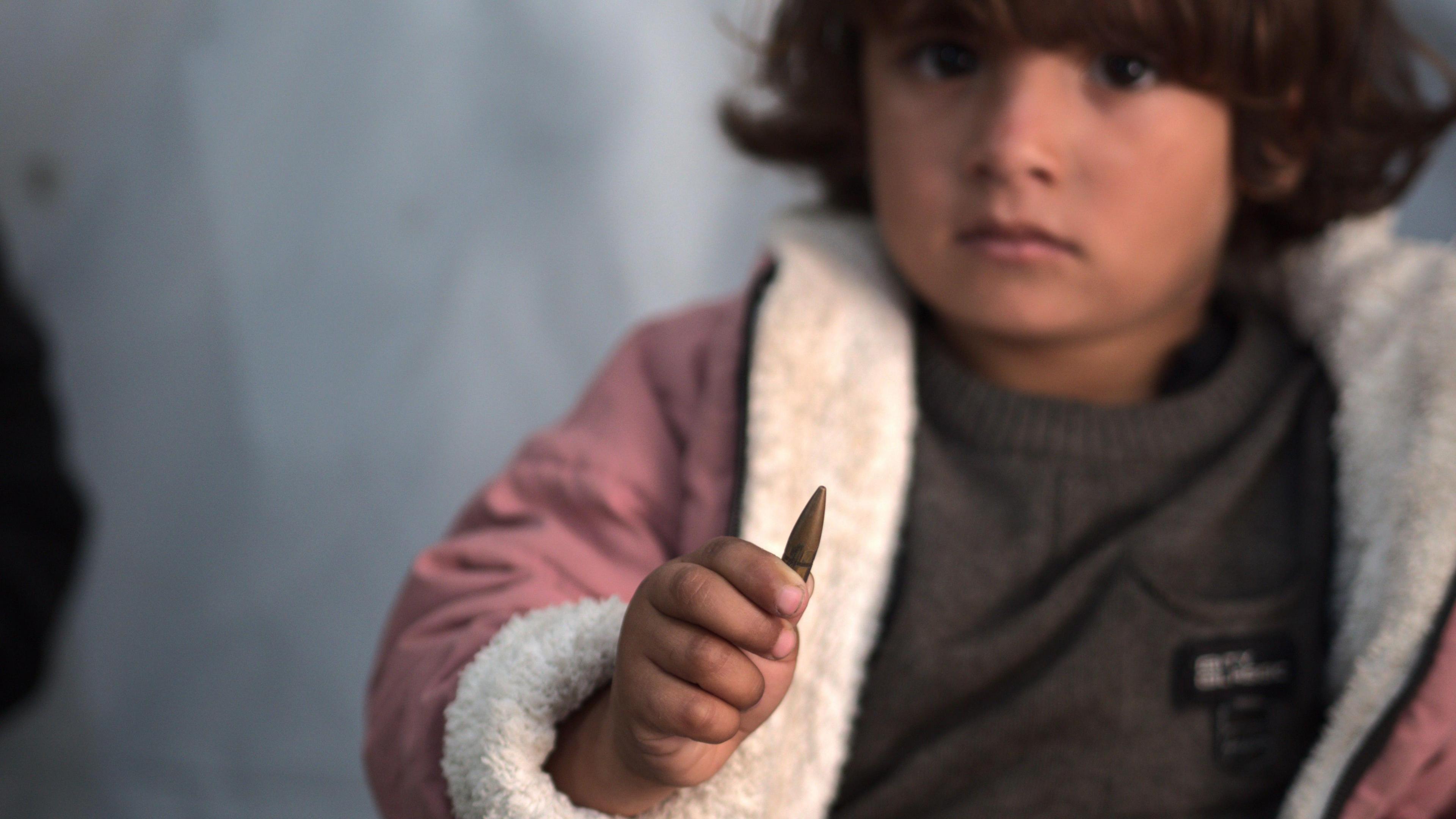Doctor in Gaza witnessed 'worst thing I've seen'

Dr Lennon is due to return to Derby next week
- Published
A doctor has opened up on witnessing one of the "worst things he has ever seen" in his medical career while working in Gaza.
Iain Lennon, an emergency medicine consultant at Royal Derby Hospital, is currently working in a field hospital near the city of Khan Younis as part of a one-month placement with the charity UK-Med.
Dr Lennon said the majority of patients are treated for gunshot wounds and injuries from explosions, but on the second day of his placement he was involved in treating people following a "mass casualty incident".
"We can't comment on the politics of it, I'm not a politician or a lawyer but I can tell the stories of the people that I've met here and that's important to do," he said.
Dr Lennon said the field hospital is made out of wood and plastic sheeting but has a lot of modern equipment.
The 53-year-old, who has worked in Derby for the past 19 years, lives in the compound, near the beach at Al Mawasi, but leaves three times a week to assist the emergency department in a hospital in Khan Younis.
He said he is well aware of fighting going on elsewhere and sees it first-hand in the injured people he treats.

UK-Med has treated nearly 400,000 people in Gaza since January 2024
"There's a constant noise from Israeli drone aircraft, you will frequently hear artillery explosions and weapons firing," he said.
"There are moments where you are more concerned.
"The area we are in is a deconflict zone so it is made very clear to Israeli forces and also to forces in Palestine there is an agreement not to fire on our location.
"But things do happen near to you and you think 'that was very close'."
Dr Lennon said he had to deal with a distressing morning on his second day in the territory.
"We had a mass casualty incident and that is probably the worst thing I have ever seen in my medical career.
"It was both scale and the types of injuries involved.
"There were people with amputations, people who were dying in the emergency department because there was literally nothing you could do to save them.
"It was not just adults but children with significant injuries as well.
"That takes a moment or two to sink in and to get around it so you can continue to work."
Supply issues
Dr Lennon has been in Gaza for three weeks and is due to return to Derby next week, a prospect he said left him with "mixed feelings".
"I'll be a little bit sad to leave the people behind but I will be pleased to get back to my family," he said.
"It's really important we tell some of the stories that have happened here."
Dr Lennon joined up with UK-Med, a humanitarian medical non-governmental organisation providing aid in conflict and disaster areas, about seven years ago and has treated people in a number of countries.
He said the organisation has found it difficult to get resupplied with some items in Gaza.
Listen: "The worst thing I have ever seen"
There is still a few months of supplies of consumables, such as bandages, and medications are not a problem, but there has been difficulty in sourcing blood testing kits, he explained.
UK-Med has called for support to sustain its life-saving medical operations in Gaza, where hospitals and field units are facing "relentless pressure and overwhelming patient needs".

UK-Med runs field hospitals such as this one in Al-Mawasi
Since January 2024, UK-Med teams - funded by the UK government and working in partnership with Palestinian healthcare professionals - have treated nearly 400,000 patients across two field hospitals in Gaza.
These include trauma cases, emergency surgeries, maternity care, and treatment for chronic conditions exacerbated by conflict.
Israel launched a military campaign in Gaza in response to Hamas' cross-border attacks on 7 October 2023, in which about 1,200 people were killed and 251 others were taken hostage.
At least 54,470 people have been killed in Gaza since then, including 4,201 since Israel resumed its offensive on 18 March, according to the territory's Hamas-run health ministry.
Get in touch
Tell us which stories we should cover in Derby
Follow BBC Derby on Facebook, external, on X, external, or on Instagram, external. Send your story ideas to eastmidsnews@bbc.co.uk, external or via WhatsApp, external on 0808 100 2210.
Related topics
- Published19 January
